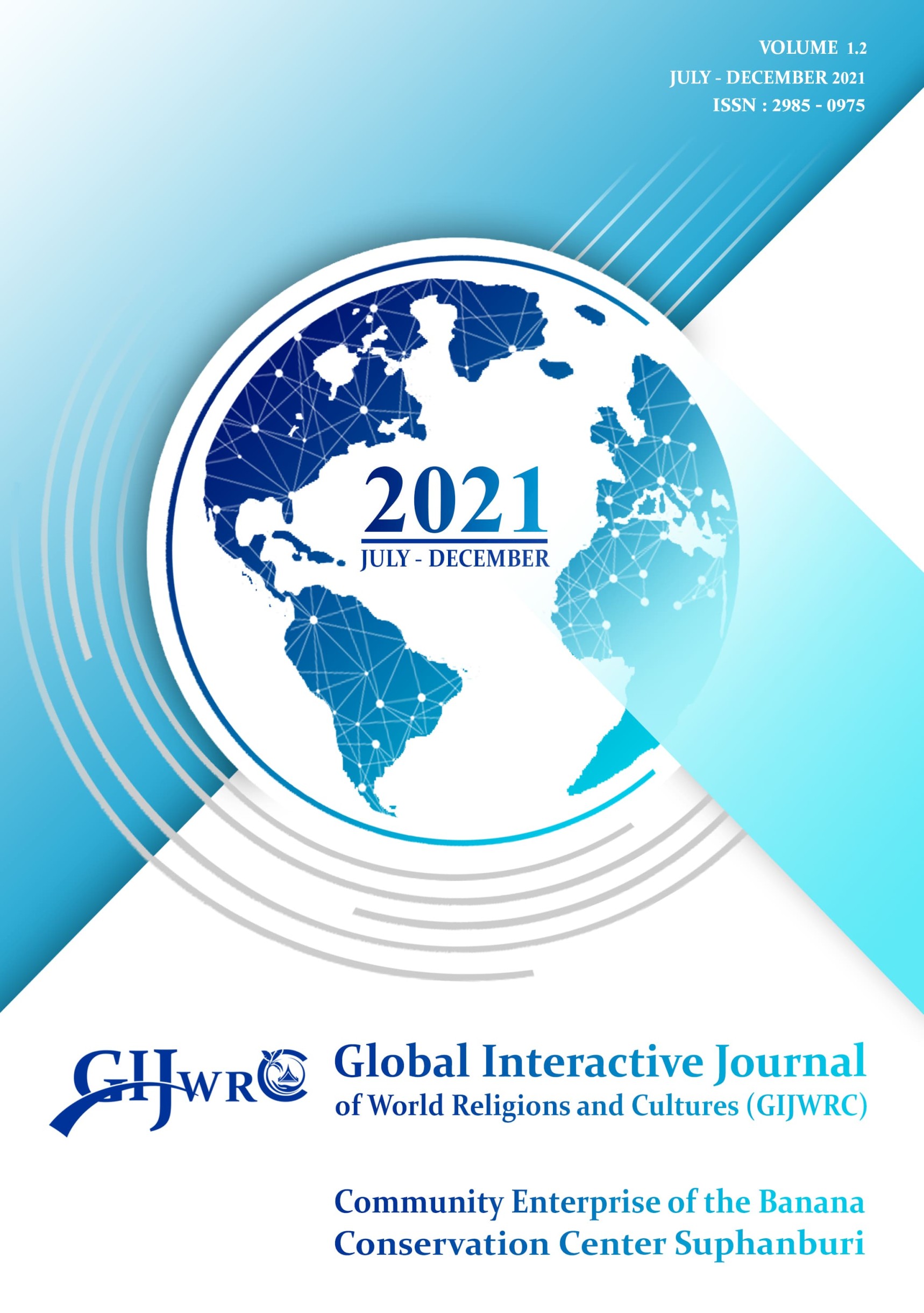PARTICIPATION PROCESS OF PLANTS SUSTAINABLE ECONOMIC FOR DEVELOP COMMUNITY ENTERPRISES
Main Article Content
Abstract
The current economic situation in Thai society has affected people at almost every level of Thai society. Those who are living in poverty will be affected the most. Causing difficulty in living and earning one's living, Therefore, there is a process involved in plant formation here. It is specific to plants that are economically essential herbs in the development of community enterprises. Emphasis is given to developing it into an economic crop. That can create a career and a lot of income. It shows that medicinal plants, in addition to being used to treat diseases, can also be used as a way to generate income for the community. In emphasizing the processes in the 5th National Economic and Social Development Plan and the 7th–8th National Economic and Social Development Plan, participation is the cooperation of the people. Whether it is an individual or a group of people who agree to take responsibility for the development and change in direction, to study medicinal plants for export as cash crops under such are 1) support and development of local academics and technology, namely Thai traditional medicine, Thai traditional medicine, Thai massage, and herbs; and 2) support and promotion of self-care by using herbs, indigenous medicine, and Thai massage at the individual, family, and community levels.
Article Details
References
Jintawee Kasemsuk (2011). “Creating Participatory Processes”. Research report. Department of public relations. Faculty of Communication Arts: Sripatum University.
Community Enterprise Promotion Act (2005). Government Gazette, Volume 122, Section 6 Kor.
Thai Youth Encyclopedia Project Foundation. Benefits of herbs. (Online). Source:https://www.saranukromthai.or.th/ (22 March 2023).
Wanchai Siriwatanakul (2023). Unit 1 Meaning, importance and benefits of plant products. Phichit College of Agriculture and Technology (Online). Source: ttps://online.pubhtml5.com.
Sarit Thanyakitjanukit (2004). “Participation of community committees in environmental management: a case study of the community. in the municipality of Trang”. Master of Arts thesis. Department of Social Policy and Planning. Faculty of Humanities and Social Sciences. Thaksin University.
Office of the National Economic and Social Development Board (2002). The 9th National Economic and Social Development Plan. Bangkok: KMUTT.
Agricultural Research Development Agency (Public Organization) (2023).
Economic crops, household and country income-generating products. (Online). Source: https://www.arda.or.th/.
Sudaduang Ruangrujira (2000). Principles of Marketing. 9th edition. Bangkok: Prakaipruek.
Sanoh Khaokham (2015). “The use of herbs according to the Buddha's permission for primary health care”. Doctor of Philosophy Thesis. Graduate School: Mahachulalongkornrajavidyalaya University.Anand Tanaisri (2023). Enterprise. (Online). Source: http://ophbgo.blogspot.com.
Angelfire (2023). Meaning, importance and benefits of medicinal plants. (Online). Source: https://www.angelfire.com/ri2/rangsan/important.html
D.G. Harland (1992). Health and welfare Indicators. Current's Canadian Research Ottawa. Onfario. Department of Regional Economic Expansion: Oxford.
Mega We care (2023). Plant foods Vs Meat foods: Academic data. (Online). Source: https://www.wellnesswecare.com/th/article/.
Rigg, Jonathan. “An Early Foray into Participation in Thailand.” Paper presented at the 10th International Conference on Thai Studies. Thammasat Bangkok, University: 2008.


